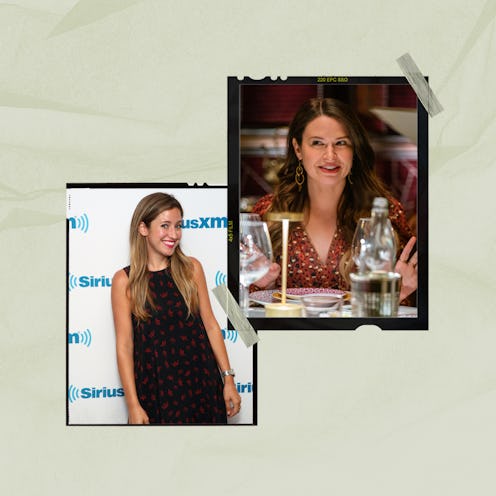TV & Movies
Inventing Anna Subject Rachel Williams Sues Netflix For How The Show Portrayed Her
This isn’t the first time she’s spoken out against Inventing Anna’s inventions.

Earlier this year, Shonda Rhimes took a break from the romantic vibes of Regency England to helm something much more 2010s: Inventing Anna. Based on the 2018 New York Magazine article, “How Anna Delvey Tricked New York’s Party People,” the Netflix series dramatized the story of the titular convicted con artist Delvey — and the people she scammed along the way. But for one of those people, Inventing Anna might have been a little too, well, inventive.
As Deadline reports, Rachel Williams (who was portrayed by Katie Lowes on the show) filed a defamation lawsuit against Netflix on Aug. 29. “The reason why we have had to file this lawsuit is because Netflix used Rachel’s real name and biographical details, and made her out to be a horrible person, which she is not,” attorney Alexander Rufus-Isaacs told the outlet. Bustle reached out to Netflix for comment, but did not hear back by the time of publication.
The lawsuit claims that “Netflix made a deliberate decision ... [to] portray her as a greedy, snobbish, disloyal, dishonest, cowardly, manipulative and opportunistic person.” As a result, it continues, Williams “has been subjected to a torrent of online abuse which have caused her personal humiliation, distress, and anguish, as well as damages to her earnings and/or potential earnings.”
This isn’t the first time Williams has criticized the Emmy-nominated Netflix series — whose trailer featured a disclaimer that “this story is completely true... except for the parts that are totally made up.” In February, Williams told Vanity Fair (her former employer) that Lowes’ “concern for accuracy ... seems limited to the spelling of my full name,” adding that “this sort of half-truth is more insidious than a total lie because it causes uninformed viewers to mistake fiction for fact based on mere fragments of reality.”
Neff Davis, another member of Delvey’s IRL friend group, also addressed the show’s veracity in an interview with Bustle — though unlike Williams, Davis still considered Anna a friend and actually consulted on the project. “It was literally a dream come true,” she said. “They nurtured my love for film and didn’t treat me like just a character.”
When asked about on-screen Neff’s “unsympathetic” response to Rachel’s struggle with Anna (which included being saddled with more than $60,000 in credit card debt), Davis said she was “not sure why Shondaland” took that approach. “But I loved it,” she added. “White people get enough sympathy. Plus, Rachel got paid very well from her book and AMEX forgave her charges. What is there to sympathize with?”
According to Williams’ attorney, Rufus-Isaacs, the fact “that she had chosen to play for the other team, i.e., HBO,” could have impacted her characterization on the show, he claimed to Deadline. HBO and Lena Dunham had optioned Rachel’s book, My Friend Anna, for development — but as Vanity Fair points out, that would-be project is no longer in the works.